Conference Presentations by Yasunori Hayashi
Papers by Yasunori Hayashi
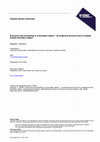
Learning Communities: International Journal of Learning in Social Contexts, 2020
In this paper, I grapple with the application of a boundary object, in its position at the centre... more In this paper, I grapple with the application of a boundary object, in its position at the centre of a cross-cultural project in Indigenous northern Australia involving discrete knowledge communities-Yolŋu Indigenous landowners and hydrogeologists engaging in the hope of developing a community-led water management plan. Although I was officially assigned as a community engagement officer and a language translator, I found myself becoming a boundary object, comparable to a three-dimensional map of Aboriginal land. My positionality was considerably unsettling at times due to a culmination of disconcertments surfacing from my figure as a knower adopted into Yolŋu kinship system, as modest kin to the Yolŋu Aboriginal landscape of land and people. As a witness to the ways in which Yolŋu family live and care for their environment with the absence of centrality, I extend the notion of boundary object to the central understandings of Yolŋu kinship practice, where everyone and everything is a boundary object.
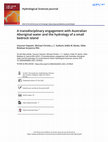
Hydrological Sciences Journal, 2021
Yolŋu Aboriginal people's knowledge about water ("gapu") and its governance has strong cultural s... more Yolŋu Aboriginal people's knowledge about water ("gapu") and its governance has strong cultural significance and meaning in East Arnhem Land Aboriginal worlds in northern Australia. This study used transdisciplinary research methods to explore the ways in which Yolŋu Aboriginal gapu and Western science hydrological knowledge can work together and contribute towards water management on Milingimbi Island, a small, resource-constrained, bedrock island. Transcending disciplinary boundaries is distinctly different to an interdisciplinary, socio-hydrological perspective, which can pose a risk to hybridizing Aboriginal knowledge and Western science. Community engagement activities and workshops were conducted as part of a three-year research project to bring together the incommensurable knowledge communities. A participatory three-dimensional mapping exercise created a shared space, facilitating an open-dialogue exchange of insight and knowledge among Aboriginal knowledge authorities, hydrologists, public servants, and academic researchers. This paper prompts readers to reconsider the ways water can be perceived and conserved in a decolonizing way.
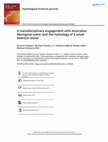
Hydrological Sciences Journal, 2020
Yolŋu Aboriginal people's knowledge about water ("gapu") and its governance has strong cultural s... more Yolŋu Aboriginal people's knowledge about water ("gapu") and its governance has strong cultural significance and meaning in East Arnhem Land Aboriginal worlds in northern Australia. This study used transdisciplinary research methods to explore the ways in which Yolŋu Aboriginal gapu and Western science hydrological knowledge can work together and contribute towards water management on Milingimbi Island, a small, resource-constrained, bedrock island. Transcending disciplinary boundaries is distinctly different to an interdisciplinary, socio-hydrological perspective, which can pose a risk to hybridizing Aboriginal knowledge and Western science. Community engagement activities and workshops were conducted as part of a three-year research project to bring together the incommensurable knowledge communities. A participatory three-dimensional mapping exercise created a shared space, facilitating an open-dialogue exchange of insight and knowledge among Aboriginal knowledge authorities, hydrologists, public servants, and academic researchers. This paper prompts readers to reconsider the ways water can be perceived and conserved in a decolonizing way.


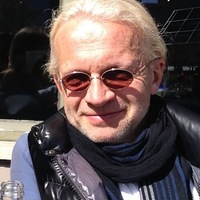



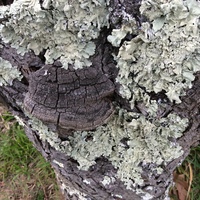
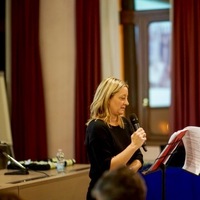


Uploads
Conference Presentations by Yasunori Hayashi
Papers by Yasunori Hayashi